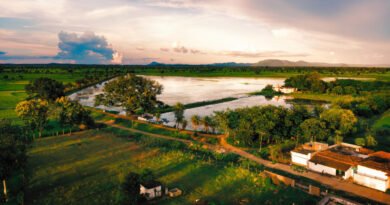The Making and Unmaking of Our Stories
The Making and Unmaking of Our Stories
Anurag Rudra
In a stellar, illuminating talk I watched online some years ago, the enormously talented writer from Nigeria, Chimamanda Ngozie Adichie spoke of the perils of colonialism and how it shapes and inhibits thought and thinking in the colonised societies, much to the detriment of the native, indigenous culture. She recalled how as a child growing up in Nigeria, reading English books and comics, she began to inhabit a world where people talked of the weather all the time and drank Ginger beer; she later recreated some of these elements in her own childlike creations. That is precisely the problem with colonialism- it drowns out all the other stories, beliefs, possibilities on the premise that there is only one, sanctified story, one supreme truth that is peddled by the white man as a justification of his colonial enterprise. The dangers of a single story, she called it. And rightly so.
Colonialism is akin to a festering sore; long after it has been weeded out, the hideous scar persists as a grim reminder, gnawing at the psyche long after the somata- the body has been liberated. While a great deal has been spoken, written, interrogated, debated and deliberated on how colonialism persists even today in the societies of the erstwhile colonies, there have hardly been systemic overhauls to decimate the narratives of the ‘white man’s burden’- the white man’s justification for colonialism as a civilising mission.
A few years earlier, there was much hue and cry raised when the use of the word ‘terrorist’ was taken strong exception to while describing the activities of revolutionaries of the Indian independence movement like Bhagat Singh and Surya Sen. Many people thought the uproar was mischevious. I personally think it was unfortunate- to take us, a nation famed for leading the march against the colonial yoke and into the hallowed corridors of democracy, more than half a century to question calling our forefathers, our predecessors ‘terrosists’ and that too, by historians who share the same blood as we do. Citing the eminence and scholarship of the historians, the guardians of ‘left-liberalism’ dismissed the protests on grounds of being ideologically motivated. However, I fail to see how citations of scholarship can justify us looking at our forefathers, our liberators from
the eyes of our oppressors and still call themy ‘terrorists’ for more than
fifty years, ad nauseam, in textbooks and pamphlets, in examinations and
interviews, in hagiographies and in what not? What motivation, or scholarship
justifies referring to Surya Sen and Bhagat Singh in the same terms we use for
those who plant bombs in primary schools?
I will not even speak of the events of 1857, which we have been told since childhood, was a revolt. How can we, as the inheritors of a free India, refer to the first sparks of the struggle for our independence as a revolt, as a mere mutiny? It
was, as Savarkar rightly corrected, the first war of India independence. We may
cite a hundred other biases and a million such fallacies. But the ugly, indigestible truth is this: one man’s vision and prophecy turned out to be stronger than the collective conscience millions of Indians, persisting even after half a century of Independence- Macaulay must be gleefully chuckling in his grave.
In the three years that I studied English Literature at college, I began to feel the utter disconnect that our syllabi had with what went on outside the classroom. Yes,
it is vital to study the history of Great Britain (not so great anymore after the sun set on colonialism) and her colonial cronies to be able to truly appreciate and delve into their literature. But then, after a point, why does it have to be a pointless tour de force into every English writer worth his two pints of sherry? Chaucer is still relevant today and will rightly be so. But why, pray tell me, was there no writing from the Northeast? Why did I not read, even in translation the poems of Chandrakanta Murasingh from Tripura who writes in Kokborok or perhaps a Shaktipada Brahmachari from the Barak Valley whose poems talk of refuge, partition and so much more?
From history to literature, the colonial idiom is manifest so effortlessly into the very rhythm of our lives and livelihoods. One such area that is so blatantly overlooked,
that lurks deceitfully unnoticed is the calendar. The Gregorian calendar to be
precise; while it is necessary to use it to synchronized with the ‘rest of the
word’, it would do us little harm if we could rescue our indigenous calendars
from the anonymity of Government gazettes and the perception that the use of
the Indian systems are the prerogative of pundits and astrologers. If Khadi can
be in vogue, why not this?
In addition to the Saka calender, officially our National Calender, even if rarely practiced, even in conjuction with the Gregorian calendar, there also exist other
systems, the Vikram Samavat for instance. In Assam, especially we have a system that is based on the time of the reign of Bhaskarvarman, monarch extraordinaire ancient Kamarupa and the Sankarabda, based on the birth of Srimanta Sankardeva..
The specialty of our Indian systems is that in additions to mere considerations
of dates, there are concepts and considerations of Ritus, i.e. seasons. Based
on solar and lunar premises, they have facilitated approximations of the
Mahabharata war based on the descriptions of the celestial bodies during the
war in the scriptures.
So while we continue to use the Gregorian calendar, we may also consider using, in simultaneity with the former, our indigenous systems as well. The Saka calender is pretty much officially established and it would do us little harm, even if we use occasionally, perhaps even for the quirk of it, our very own heritage bequeathed to us.
In the quintessentially English novel Jane Eyre, the protagonist- a governess falls in love with her employer, Mr. Rochester who incidentally has a lunatic wife locked up in the attic, who happens to be from the Caribbean. Fighting fire with brimstone, Jean Rhyss wrote, or rather rewrote the story from the viewpoint of the Creole madwoman, Mr. Rochester’s wife, Bertha, giving her a sympathetic voice and fashioning her in a kinder, humane and more acceptable light than the damning ways of Bronte. The name of the book is Wide Sargasso sea, a beautiful exercise in rewriting as a postcolonial reponse to what Adichie called, as I mentioned in the beginning, the dangers of a single story.
And that is why, precisely, we must write again, in a soaring, unapologetic voice- our own stories.

Anurag Rudra, Director, Centre for Career Guidance, University of Science and Technology, Meghalaya & Member, Advisory Panel, Central Board of Film Certification,
Government of India.



